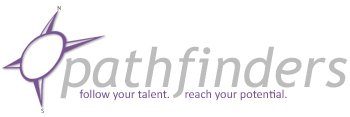Career Change at 30: Ideas & Essentials
2026 Guide: Career Change at 30 Ideas

Intro:
Thousands of smart thirty-somethings have told me they are ready get serious and choose their “real career.” For many, a career change at 30 is a moment of truth and self-honesty about their earlier career choices: “This is not who I am.”
As you approach 30 the reality of your career choice has set in. You’ve had about a decade to test-drive your career path and may be wondering what else you could be doing. It takes some living to realize that the future doesn’t necessarily work itself out. Likely, you are now facing the consequences of the “choice” made by your 17 year-old self. I’d like to share some career direction hacks to help you gain a broad perspective on making career changes at 30.
Intro: Talents First, Meaning Next
Full podcast below: Aiming Your Grit at the Right Stuff (Hosted by Bobbi Kahler at UnYielded)
Wrong Career?
If you’re not into what you’re doing or made job hops that aren’t panning out, chances are you may be in the wrong career ballpark altogether.
If you were in the right ballpark you’d know it by now.
Don’t beat yourself up—you’re not alone. About 75% of recent college grads say they did a lousy job of choosing their major, which is landing 70% of young professionals in careers that don’t fit who they are.
But Why?
Why are so many highly educated people saying, “I fell into the wrong career,” often twice?
- Too much guesswork: Most of us make career decisions by default. Without enough accurate information about our innate talents or where we fit in the career world, the best we can do in our 20s is weigh in conventional advice, conjure up a sexy “career story” that we think sounds cool, and then rely on fate to do the steering. This is a systemic problem that’s woven into our education-to-career pathway; it’s not our fault.
- Navigating without a compass: We are encouraged to take a meandering, trial and error approach to career change, but this a very costly, high risk endeavor. Lots of people are piling up graduate degrees and waking up in a second and third “wrong career” that doesn’t fit their natural talents. This is not our fault either, there isn’t an intentional process or tool kit anywhere in our education-to-career pathway to help us become aware of our innate abilities.
- Primed by primitive cues: Behavioral economists know that when young adults face complex choices, especially career choices, they take short cuts by “crowd sourcing” their decisions, a primitive instinct to play it safe by hedging their bets. On top of that, young people are easily hoodwinked by their basic, inner caveman instincts to choose career paths that signal “success” to their tribe and potential mates.
- Snookered by Sunk Cost Fallacy: As people near their 30s the romantic spell wears off and the reality of a bad career fit hits like a brick. This triggers panic and worry, which can trick us into doubling down and work even harder at an ill-suited career. The fallacy is that we’ll lose momentum, we can’t see that we’re digging our own trench. It’s human nature to be averse to losses, the majority of college educated people are hunkering down in the wrong career field for decades.
The good news: you don’t have to rely on guesswork to choose your path. There’s another way.
Read on: How to design your career and go after the life you really want.
6 Unconventional Ideas
Six Unconventional Ideas to Hack Your Career Change at 30:
 1. Uncover Your Talents First. Interests are Just Clues. Before taking the leap into a career change, get your talent bearings first. To avoid going down a dead-end road, it’s important to be clear about what career paths you’re innately cut out for. Be smart about the mainstream advice to follow your passions and interests, they may only be good clues to something deeper. First, figure out what you’re strongest natural abilities are—your innate talents are a more accurate compass for long-term fulfillment. Your more enduring passions will become more obvious once you begin the process of mastering your natural talents and strengths.
1. Uncover Your Talents First. Interests are Just Clues. Before taking the leap into a career change, get your talent bearings first. To avoid going down a dead-end road, it’s important to be clear about what career paths you’re innately cut out for. Be smart about the mainstream advice to follow your passions and interests, they may only be good clues to something deeper. First, figure out what you’re strongest natural abilities are—your innate talents are a more accurate compass for long-term fulfillment. Your more enduring passions will become more obvious once you begin the process of mastering your natural talents and strengths.
Read on: How to uncover your “hidden” abilities.
2. Really Know Before You Go Back to School. Hold off on grad school until you know where you’re ultimately going. The mainstream advice that “more education is better” is getting people into more trouble and rarely helps people find their career direction. Worldwide, Gallup studies find that very intelligent 30-somethings, many with advanced degrees, are unwittingly making career choices that “feel right” but aren’t panning out in the long run. For many people, going to grad school is a desperate leap of blind faith; they are essentially marrying a blind date.
3. Sample Your Talent Range. Many well-educated people have already attempted changing careers at 30, over half of my clients are in their late 30s and early 40s. Even with a graduate degree and a good job, most still haven’t found their fit. Some made the same mistake twice by prematurely following what they “thought” was a passion. It’s difficult to make a good career decision without sampling a small, well-suited range of careers that fit your innate potential.
Read on: What career fields am I cut out for?
4. Choose the Reality, Not the Story. The state of the American workplace is dismal; 70% of Americans report that they are not reaching their full potential. Although most parents and teachers advise that you can do anything you want with hard work, what they don’t say is how bored you’ll be if you’re not into the subject matter and primary job functions of the field you’re in. About 25 percent of my clients are newly minted lawyers who are “career change at 30 casualties;” they can’t stand the typical day-to-day nature of legal work and don’t care all that much about their client’s problems. They chose the “story” of being a lawyer and were surprised to find that they aren’t cut out for the reality of the actual work. Many say that although they have high status, their career story doesn’t cancel out the emotional pain that often stems from a mismatch with natural talents and a lack of purpose.

5. Question Tribal Norms. Many of the happiest career changers intentionally ignored pressures and advice from friends and family to stick with their socially prestigious careers. Hot career trends only work for tribal-minded people. An underlying reason for career dissatisfaction is an overly optimistic hope that the crowd knows best. Smart career decision-making is counter to conventional wisdom; people who have long-term career satisfaction and overall success in life are following their inner compass, even if it means doing something that others deem “impractical.”
My most successful career change clients have reframed their concept of a career as something that you custom design and build, rather than something to find out there as a ready-made job-off-the-shelf.
6. Trust Your Talent Whispers. Many wait until they are forty-something to make a career change, but keep in mind that that’s another 10 years that you’ll have to drag yourself out of bed to go to a job you don’t enjoy. If you feel bored or don’t genuinely like your work, trust these whispers, they are likely coming from your natural talents. When your talents are idling it gets increasingly more difficult to excel or stay competitive in your field. Even worse, faking an interest in your work causes unhealthy stress that can make you feel depressed. And be weary of small fixes that delay the inevitable. All the typically advised “work-life balance” tweaks won’t fix this sort of problem if the gap between the “real you” and your “career story” is too wide. So, if you’re considering a big career change at 30, this is the best time to do the hard work required to really get it right. For instance, if you’re thinking about a side hustle, it might as well be a smart, well-planned stepping stone toward your real gig.
Take the first step:
Anthony Spadafore, coauthor of Now What? : A young professionals career guide for career design, career choice, and career change.
If the future doesn’t come toward you, you’ll have to go fetch it. ~Zulu proverb
